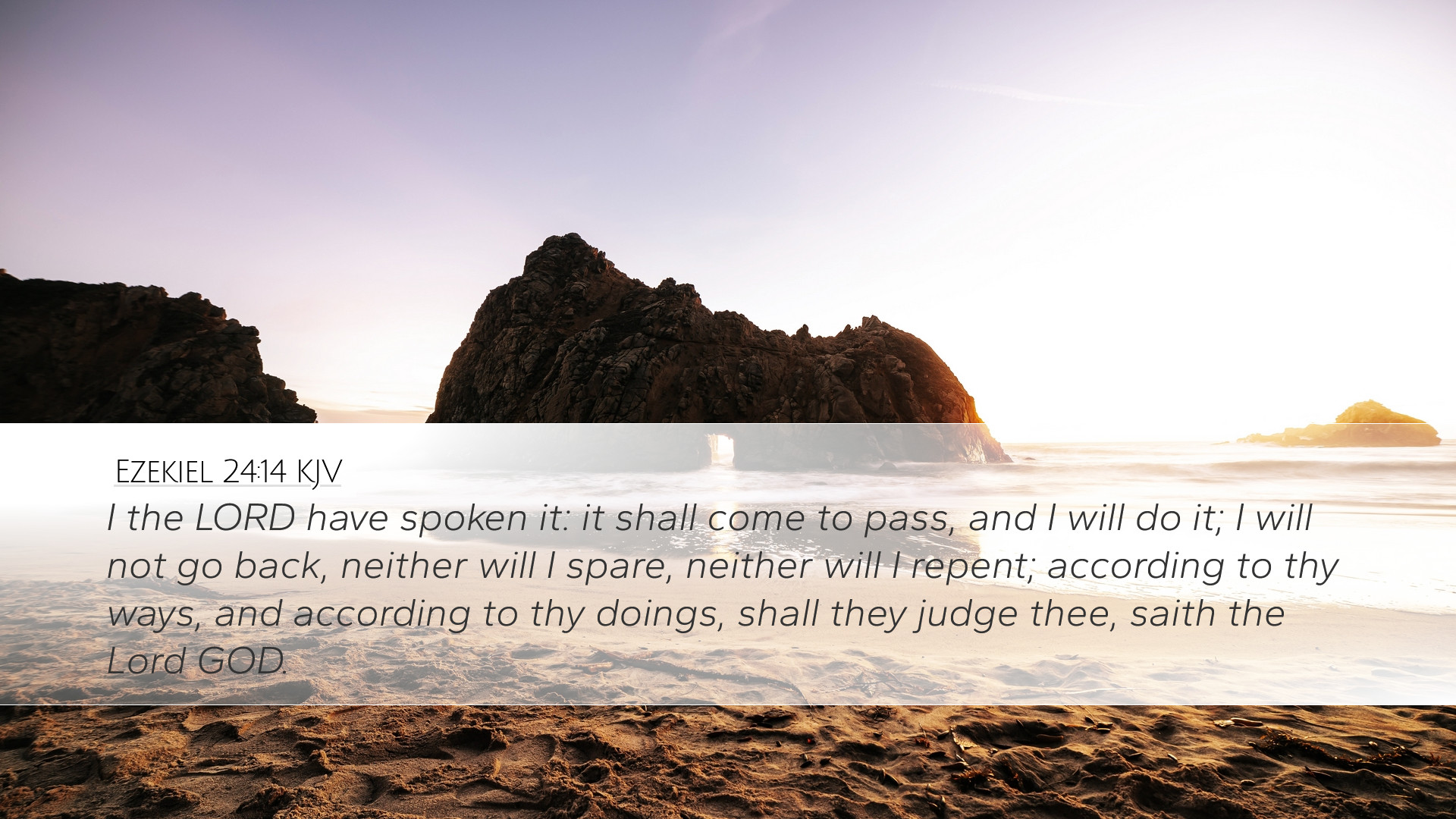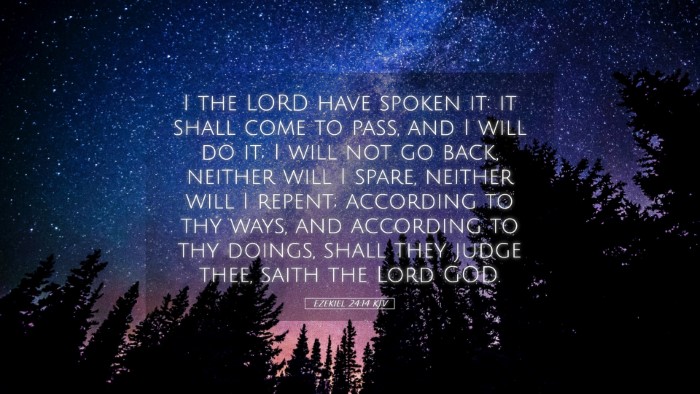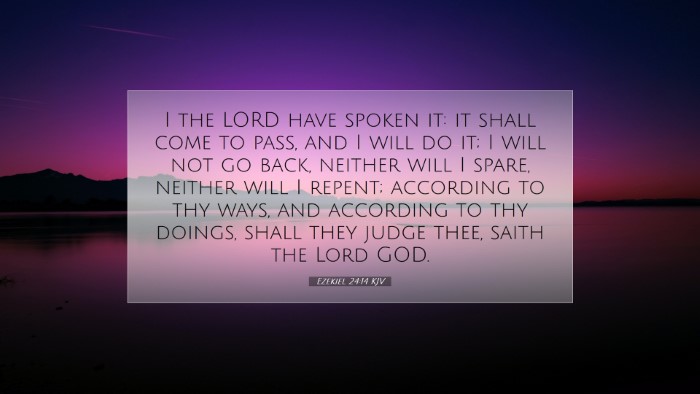Ezekiel 24:14 Commentary
Verse Overview:
Ezekiel 24:14 states: “I, the Lord, have spoken; it shall come to pass, and I will do it; I will not go back, nor will I spare, nor will I relent; according to your ways and your deeds you will be judged, declares the Lord God.” This verse serves as a stark declaration of God's intent and judgment against His people for their iniquities.
Contextual Background
The context of Ezekiel 24 is crucial for understanding the depth of this pronouncement. Ezekiel prophecies during a time of intense suffering and calamity for Jerusalem. The people of Israel had turned away from God, engaging in idolatry and immorality, which had led to their impending judgment. The metaphor of a boiling pot used in preceding verses symbolizes the pending siege and destruction of Jerusalem.
Theological Implications
This verse encapsulates several key theological themes:
- Divine Sovereignty: God’s declaration of certain judgment highlights His sovereign control over history and His authority over nations. The phrase "I have spoken; it shall come to pass" emphasizes that His word is unassailable and assured.
- Immutability of God: The declaration "I will not go back, nor will I spare, nor will I relent" indicates His steadfastness in fulfilling promises and executing judgments, which conveys a warning to humanity about the weight and acceleration of sin.
- Judgment According to Works: The phrase "according to your ways and your deeds you will be judged" sets a precedent for divine justice; God's judgment is not arbitrary but is based on the moral actions of individuals and communities.
Commentary Insights
The insights from various public domain commentaries shed light on this verse:
Matthew Henry's Commentary
Matthew Henry emphasizes the certainty of God’s word. He notes that God is not only a God of mercy but also a God of strict justice. Henry writes about the implications of God's unyielding nature, tracing it back to God's holiness and righteousness. According to Henry, this is a profound warning that believers should heed; it reminds them that while they may seek God’s mercy, they should also be aware of His judgments that are due for sinful behaviors.
Albert Barnes' Notes on the Bible
Albert Barnes highlights the definitive nature of God's judgment as expressed in this verse. He echoes the idea of divine accountability, suggesting that individuals cannot escape the moral and spiritual consequences of their actions. Barnes presents God's determination to act against wrongdoing, emphasizing that God's refusal to relent points to His commitment to justice, which serves as an important reminder for contemporary readers to embrace justice and live righteously.
Adam Clarke's Commentary
Adam Clarke provides a detailed exposition on the nature of God as a judge. He interprets this verse as a powerful assertion of God's role in executing vengeance against an unrepentant people. Clarke contextualizes the verse by connecting it to the broader narrative of Israel's disobedience, suggesting that the certainty of judgment serves as a pivotal turning point. He argues that through this pronouncement, God is both ensuring justice and calling for repentance, making it a dual-purpose statement: a warning and a call to righteousness for a wayward nation.
Practical Application
For pastors, students, and theologians, Ezekiel 24:14 serves as a critical reminder of the gravity of sin and the seriousness of divine judgment. The following applications are relevant:
- Call to Repentance: This verse should compel leaders to call their congregations to repentance, recognizing that God's judgments are real and based on the moral conduct of His people.
- Understanding God’s Nature: It is essential for leaders and scholars to teach and emphasize God's dual nature as both merciful and just, illustrating that His love does not negate His holiness.
- Encouragement to Live Righteously: Believers are encouraged to evaluate their ways and deeds in the light of God's Word, fostering a community that embodies justice, mercy, and truth.
Conclusion
In summary, Ezekiel 24:14 presents a profound insight into God’s character as a sovereign judge. By understanding the weight of this verse through the lens of public domain commentaries, one gains an appreciation of God’s inexorable nature and the reality of divine judgment. As we delve deeper into the study of Scripture, let us remain mindful of God's words—embracing His call to holiness, justice, and truth in our personal lives and our communities.


